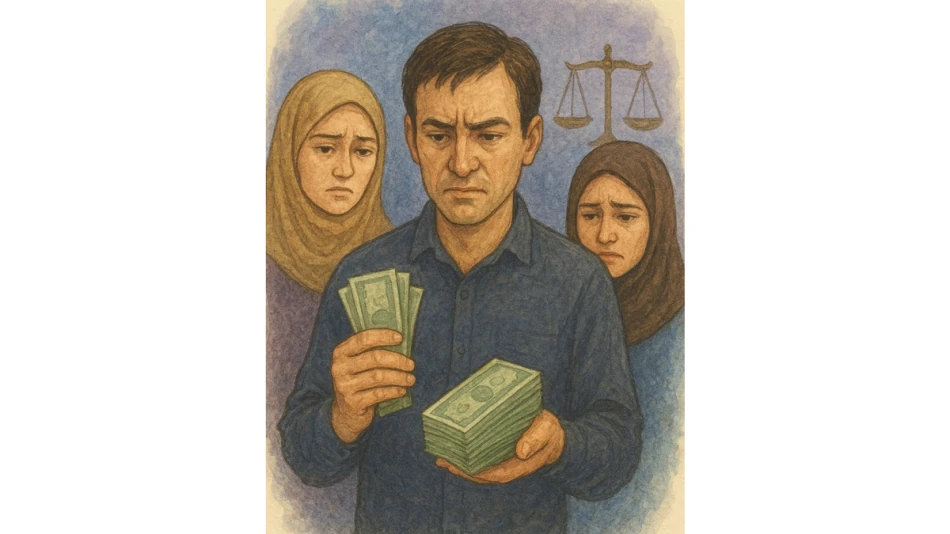
Fraudster Exploits Sisters' Pensions for Decade Without Their Knowledge
UAE Court Orders Family to Return Nearly AED 700,000 in Misappropriated Pension Benefits
A federal civil court in the UAE has ordered a man and his mother to repay AED 697,700 in pension benefits they unlawfully collected from their two sisters over nine years. The case, spanning from 2009 to 2018, highlights growing scrutiny over pension fraud and family financial disputes in the Emirates, as government agencies increasingly digitize payment systems and require direct bank transfers to beneficiaries.
The Scheme Unraveled by Digital Banking Requirements
The fraud came to light when the government pension authority requested the sisters provide their International Bank Account Numbers (IBAN) for direct transfers. This routine administrative update, part of the UAE's broader financial digitization efforts, revealed that their brother had been collecting their deceased father's pension benefits for nearly a decade without their knowledge.
The sisters discovered their brother had been receiving their combined monthly entitlements since their father's death 17 years ago. When confronted, he refused to return the money despite repeated demands, forcing them to pursue legal action.
Court Rejects Statute of Limitations Defense
The defendants attempted to dismiss the case by citing statute of limitations provisions under UAE Civil Transactions Law Article 474 and Decree Law 57 of 2023. However, the court rejected these defenses, ruling that the case involved recovery of unlawfully appropriated funds rather than a direct challenge to government pension decisions.
The brother claimed he had power of attorney from all heirs and was distributing the money to his mother for family expenses, asserting all family members knew about the arrangement. The court found this defense unconvincing given the sisters' clear lack of knowledge about the ongoing payments.
Financial Expert Confirms Systematic Misappropriation
A court-appointed financial expert verified that pension payments totaling AED 697,788.40 were transferred directly to the brother's bank account from 2009 until August 2018. Each sister was entitled to AED 348,894.20 during this period.
The expert's findings demonstrated a systematic pattern of diversion rather than isolated incidents, strengthening the sisters' case for both restitution and damages.
Broader Implications for UAE's Pension System
This case reflects wider challenges facing pension systems across the Gulf as governments modernize payment infrastructure. The UAE's push toward mandatory direct bank transfers mirrors similar reforms in Saudi Arabia and Kuwait, designed to reduce fraud and ensure benefits reach intended recipients.
The court's decision sends a strong signal about the UAE's commitment to protecting pension beneficiaries, particularly vulnerable family members who may be excluded from financial decisions. By ordering joint liability between the brother and mother, the ruling establishes that passive recipients of misappropriated funds cannot escape responsibility.
Damages Reflect Family Breach of Trust
Beyond ordering full restitution, the court awarded AED 25,000 in damages to each sister, specifically noting that the harm was compounded by the fact it came from their closest relatives. This recognition of emotional and reputational damage in family financial disputes represents an evolving approach in UAE civil courts.
The court also imposed 5% annual interest on all amounts from the date of filing until full payment, ensuring the defendants cannot benefit from delays in compliance.
Setting Precedent for Digital-Era Fraud Cases
As the UAE continues digitizing government services, this ruling establishes important precedents for cases where traditional family financial arrangements conflict with modern transparency requirements. The decision reinforces that informal family agreements cannot override individual legal entitlements to government benefits.
For legal practitioners, the case demonstrates how digital payment systems are creating new avenues for discovering long-standing financial irregularities, potentially triggering more family disputes as direct payment requirements expose previously hidden arrangements.
The ruling ultimately strengthens the UAE's reputation for protecting individual financial rights while adapting its legal framework to address fraud enabled by outdated payment systems.
Most Viewed News

 Sara Khaled
Sara Khaled






